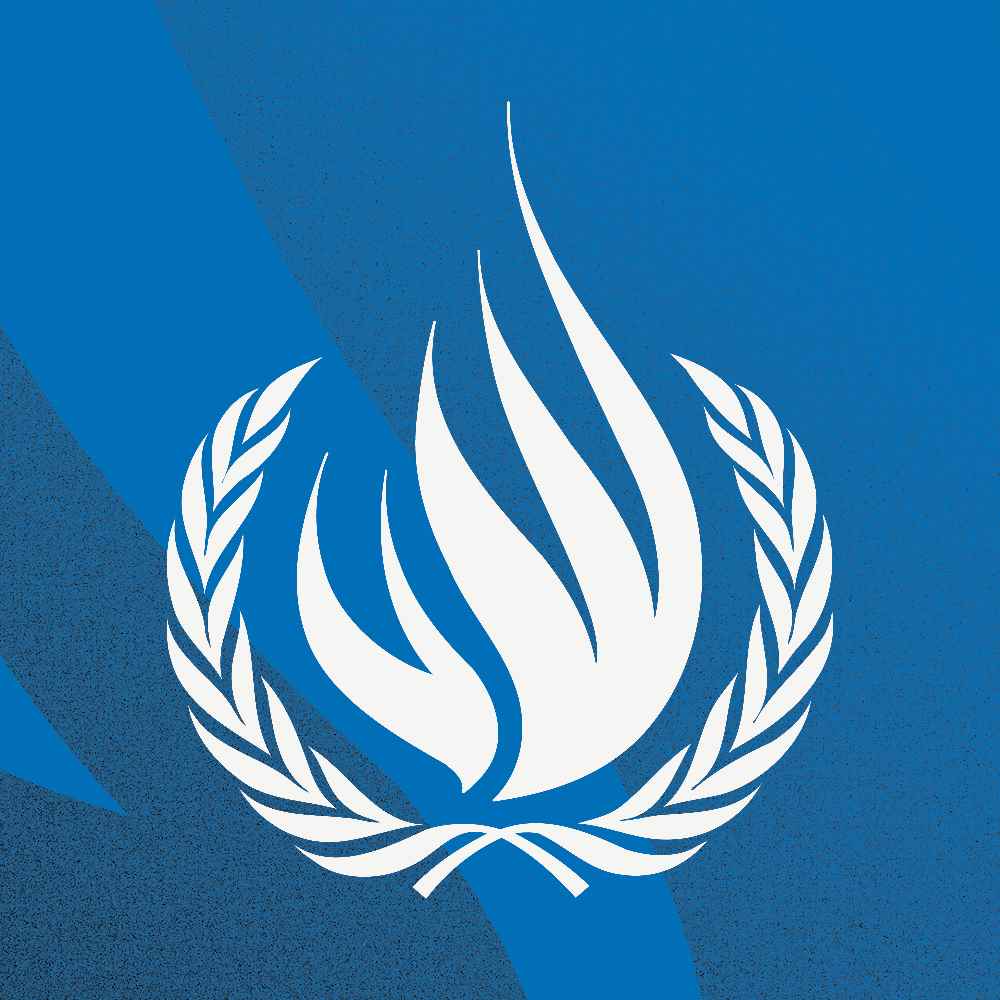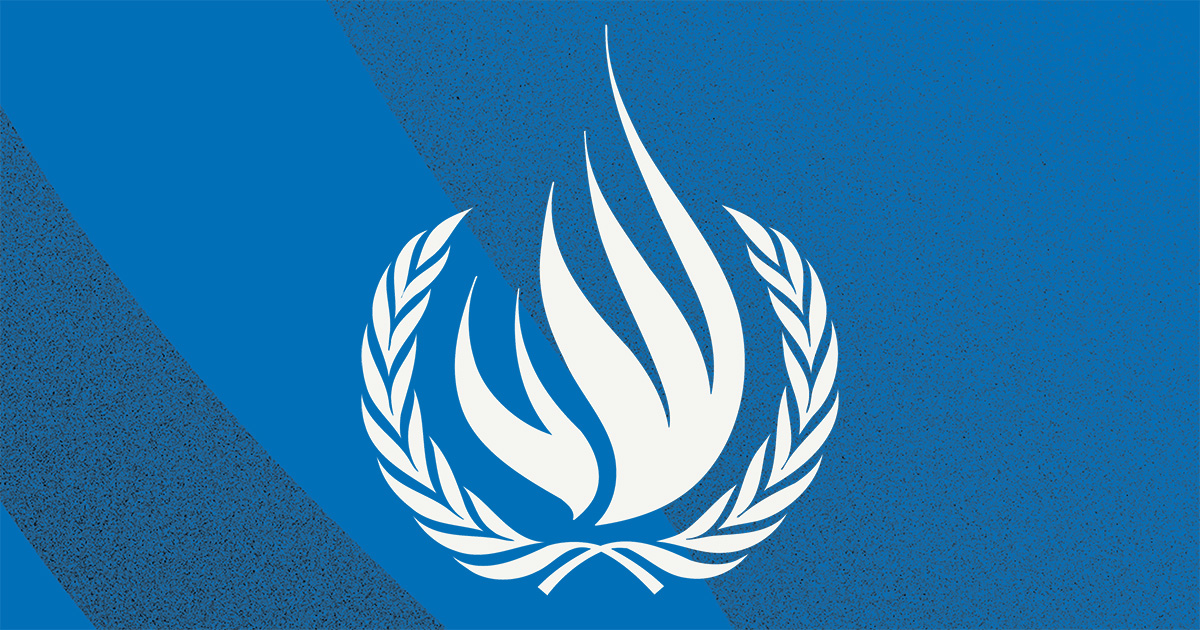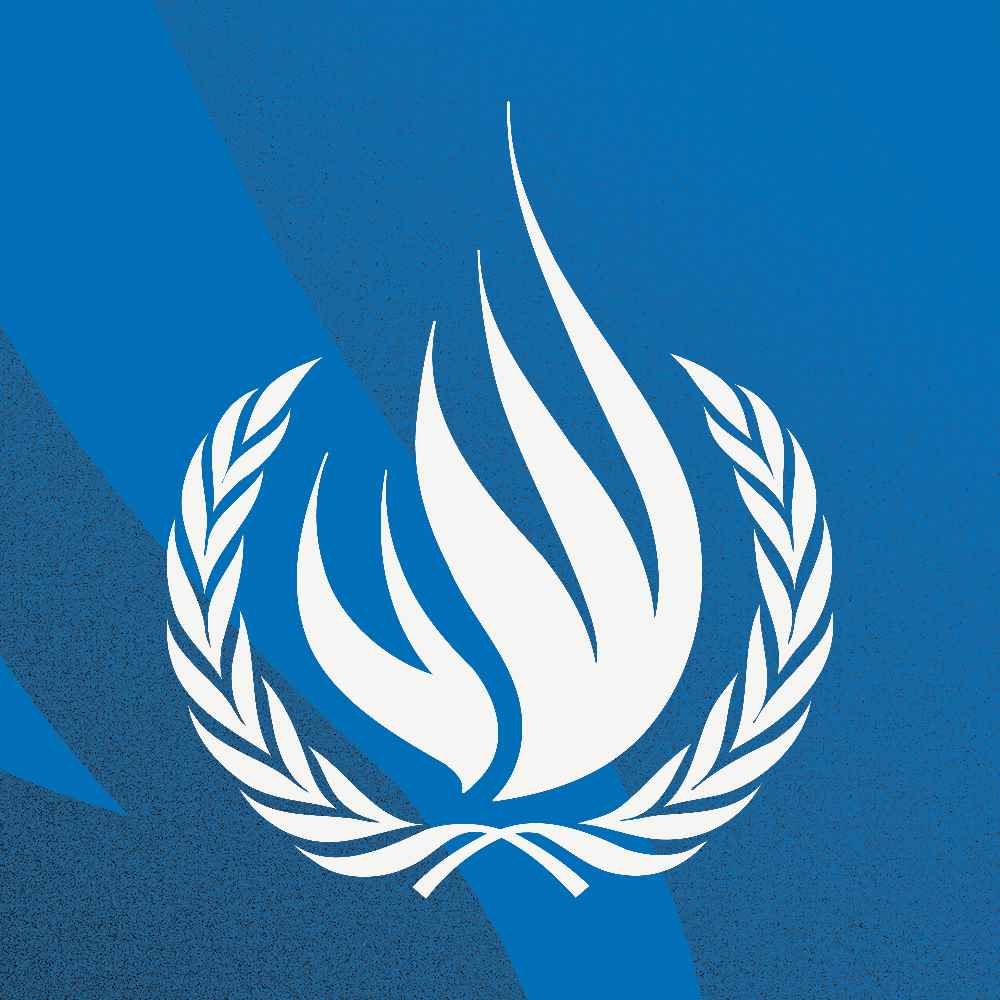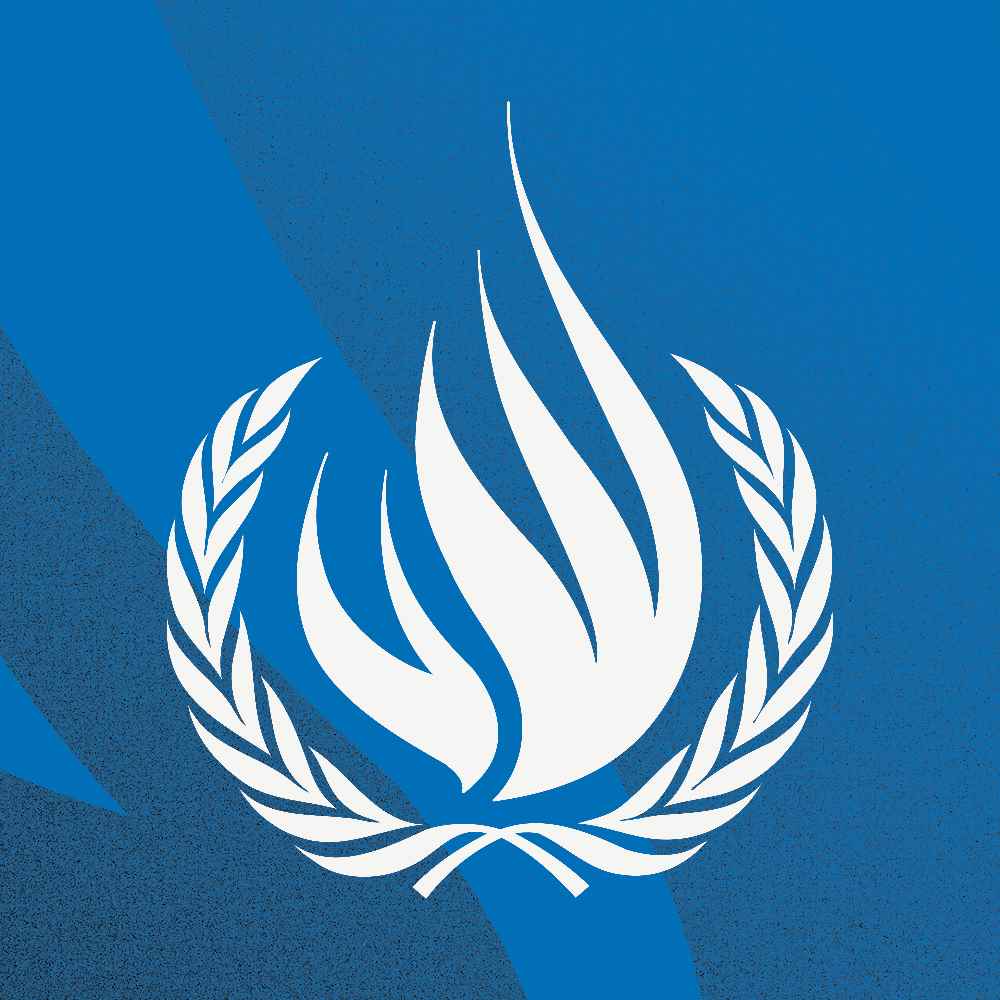
The Committee on the Elimination of Discrimination against Women this afternoon heard from representatives of non-governmental organizations and national human rights institutions about the situation of women’s rights in Hungary, Georgia, Norway and Tunisia, whose reports the Committee will review this week.
In relation to Hungary, speakers raised concerns about the lack of a State-based approach to violence against women, discriminatory statements by high-level stakeholders, and lack of access to medical abortion, among other issues.
On Georgia, speakers raised, among other issues, the high rate of sex crimes, and problems faced by women in politics and women living with HIV.
Non-governmental organizations speaking on Norway raised issues, including high levels of rape and sexual violence, and the lack of a consent-based definition of rape. Climate change, particularly for indigenous women, was also highlighted.
On Tunisia, speakers addressed Tunisia’s new constitution, which impacted equality, gender parity within the State party, and discrimination faced by HIV-positive women, among other issues.
The Commissioner for Fundamental Rights of Hungary spoke on Hungary, as did the following non-governmental organizations: Hungarian Women’s Lobby and NANE Women’s Rights Association.
The Deputy Public Defender of Georgia spoke on Georgia, as did the following non-governmental organizations: Sapari, WIC, EWNA and Equality Movement.
The Director of the Norwegian National Rights Institution spoke on behalf of Norway, as did the Senior Policy Advisor at the Norwegian Equality and Non-Discrimination Ombud. The following non-governmental organizations also spoke: Amnesty International and FOKUS.
The following non-governmental organizations spoke on behalf of Tunisia: ATFD, Aswat Nissa, Musawah and O3DT.
The Committee will hold a second meeting with civil society organizations on Monday, 13 February when it will be briefed on the situation of women in Bahrain, Mauritania, Slovenia and Costa Rica, whose reports will be reviewed next week.
The Committee on the Elimination of Discrimination against Women’s eighty-fourth session is being held from 6 to 24 February. All the documents relating to the Committee’s work, including reports submitted by States parties, can be found on the session’s webpage. Meeting summary releases can be found here. The webcast of the Committee’s public meetings can be accessed via the UN Web TV webpage.
The Committee will next meet in public at 10 a.m. on Tuesday, 7 February to review the ninth periodic report of Hungary (CEDAW/C/HUN/9).
Opening Remarks by the Committee Chair
ANA PELÁEZ NARVÁEZ, Committee Chairperson, who was elected as Chair of the Committee during a closed meeting earlier in the day, said this was the first opportunity during the present session for non-governmental organizations and national human rights institutions to provide information on States parties whose reports were being considered during the first week of the session – Hungary, Georgia, Norway and Tunisia. A second remote meeting with non-governmental organizations and national human rights institutions would take place on Monday, 17 October from 3:30 p.m. to 5 p.m., where representatives would be invited to provide country-specific information on the States parties whose reports would be considered during the second week of the session: Bahrain, Mauritania, Slovenia and Costa Rica.
Discussion with Non-governmental Organizations from Hungary, Georgia, Norway and Tunisia
On Hungary, Hungarian Women’s Lobby said there was no specific body for women"s rights issues within the parliamentary structure. The Government had not provided a supportive environment for non-governmental organizations with a women’s rights approach, making their access to State funding unlikely. Hungary had not had a solid policy basis for promoting women"s rights since 2010. Different high-level stakeholders made statements that were discriminatory, sexist and misogynistic, targeting specific politicians and the place of women in general. Although several national and local elections had taken place since the previous Committee review process, no significant positive changes in the political participation and representation of women were observed. The Government continued to emphasise traditional female and male role models in the national core curriculum. Compulsory textbooks contained sexist content that reinforced gender stereotypes and expectations. Only surgical abortion was legal in Hungary; medical abortion was not available, despite the evidence regarding its safety. The needs of refugee women, particularly those coming from Ukraine, often remained unmet and unaddressed. Hungarian Women’s Lobby called on the Committee to address these concerns.
NANE Women’s Rights Association said the Hungarian Government rejected the ratification of the Council of Europe’s Istanbul Convention. At the same time, the comprehensive approach of prevention of violence against women was missing from the State response. Not all forms of violence against women were addressed within the legal framework, and not all kinds of victims of domestic violence were protected. Protection measures were inadequate and victims frequently experienced institutional betrayal and victim-blaming. These problems indicated a lack of adequate training for professionals and a lack of adequate protocols to guarantee the professional handling of cases. The lack of specialised services, and limited access to specialist services for victims of violence was also of great concern. The number of shelters lagged far behind the international standards and they were difficult to access. In Hungary, there was not a single rape crisis centre or sexual violence referrals centre. NANE Women’s Rights Association asked the Committee to address these concerns.
Concerning Georgia, Sapari said a shadow report had been drafted which showed that although much had been improved regarding legislation on violence against women, a major legislative gap remained concerning sexual crimes. Standards of proof remained unreasonably high in Georgia when it came to sex crimes. A lack of education and awareness left sex crimes unreported and unpunished. The increased rates of femicide were highly concerning. Statement collection by police was an issue; no audio or video testimonies were used, or verbatim transcribing. Economic empowerment programmes for victims were underdeveloped and economic violence against women and families was organised with no effective remedies available. Women politicians faced extremely sexist hate speech and women activists and human rights defenders faced attacks online and were unsupported and even attacked by the Georgian Government.
WIC said despite the reforms implemented, there was still a challenge to the functioning of gender equality mechanisms in Georgia. Recent changes caused a downgrade of the status of positions of heads of gender equality mechanisms at the executive and legislative branches. The changes were made without any discussions with the women’s rights defenders. In 2020 changes were made to the Georgian Election Code, and gender quotas were introduced. This was a step forward, but to achieve real gender equality, additional changes needed to be made to the legislation and the existence of gender quotas needed to be prolonged. Women"s participation at the decision-making level remained a challenge, which was evident in the low participation rate of women at the level of formal peace negotiation processes. It was important to integrate the recent challenges related to the war in Ukraine and the Ukrainian refugee women in Georgia, into the national action plan.
EWNA said the criminalisation of HIV transmission in Georgia, intersecting with gender-based violence, made it difficult for women to access HIV services, including HIV prevention and sexual and reproductive health and rights. Stigma and discrimination disproportionately affected women living with HIV and limited their access to financial resources and assets, creating barriers to access a wide range of services and support. EWNA called for Georgia to decriminalise the transmission of HIV, and to regulate the established procedure for notifying sexual partners of HIV status. It should also be ensured that women had access to pre-exposure prophylaxis medication and to the full range of contraceptives, as well as access to safe abortion and assisted reproductive technologies. Comprehensive care should also be provided for women living with HIV who were exposed to intimate partner violence.
Equality Movement said lesbian, bisexual, transgender and queen women were among the most vulnerable and marginalised groups in Georgia, subject to pervasive discrimination, stigma, persecution and hate crimes. The lack of legal prospects, the low awareness of anti-discrimination legislation and redress mechanisms, and poor access to justice contributed to an unwillingness to report. The Committee should recommend that the State strengthen institutional measures within the law enforcement system to prevent hate crimes against this group. The Georgian Government had adopted the new Human Rights Strategy for 2022-2030, but had failed to involve community leaders in the drafting process properly. Despite recommendations and appeals from the queer community and civil society organizations, steps to tackle intolerance and discrimination towards queer people were excluded from the final document. Therefore, despite the fact that domestic violence against family members based on sexual orientation was widespread, the Government did not recognise the need to address this issue. The Committee was urged to recommend that lesbian, bisexual, transgender and queer issues were included in the human rights policy documents. Legal gender recognition remained unsettled in Georgia and limited the opportunities for trans people. Equality Movement urged the Committee to recommend to the State to create transparent and effective administrative mechanisms for legal gender recognition based on respect for human rights, and to recommend to the State to ensure queer women’s access to social welfare.
Speaking on Norway, Amnesty International said Norway ranked among the countries with the highest levels of gender equality. Despite this, the level of gender-based violence, including rape and other sexual violence, as well as impunity for these crimes, remained high. According to the only available national prevalence study on rape and sexual violence from 2014, 9.4 per cent of women in Norway had been the victim of forcible rape at least once in their lifetime, and there was no indication that the rape of young women had decreased over the last 50 years. The level of reporting by rape survivors remained low, and few of the rape survivors who reported saw their cases heard in court, further exacerbating impunity. Although Norway was a party to the Istanbul Convention, the law still defined rape in terms of the use or threat of violence, rather than on the absence of freely given consent. The Norwegian authorities should urgently amend the legal definition of rape to one based on consent to ensure rape survivors access to justice, and to bring about systemic societal change and prevent rape in the long term.
FOKUS said the Penal Code Council was not a proposal that gave Norway a consent-based definition of rape, and was not in line with the Committee’s recommendation in 2017. When it came to gender equality, Norway was a leading country. However, a shadow report highlighted several examples of how gender-neutral laws, measures and studies did not take account of the situation of different groups of women. The Penal Code Council also proposed other amendments to the chapter on sexual offences. The proposal was without gender perspectives and equality assessments. In 2017 the Committee raised concerns about the restructuring of the Equality and Anti-Discrimination Tribunal and Ombud. Previously, the Tribunal could give non-binding statements about how legislation was in breach with the Convention or Norwegian law on anti-discrimination. Today the Tribunal could not. This had made it difficult to hold public authorities responsible and ensure that the legislation was in line with the Committee. Women’s greater responsibility for unpaid care work was a major cause of the differences in access to economic resources between men and women. When it came to gender violence and partner homicide, not much had changed in Norway since 2017. Every fourth murder in Norway was a partner homicide. Although the perpetrators of partner homicides were mainly men, and women were the victims in 90 per cent of the cases, gender neutral terms were still used. The Norwegian authorities needed to respect the consequences of climate change for indigenous women, who were especially affected by climate change.
Concerning Tunisia, ATFD said Tunisia had lifted all specific reservations to the Convention, which mainly concerned equality in the family and nationality. Despite the lifting of reservations, no egalitarian reform had been made in the Personal Status and Nationality Codes, which were the most discriminatory texts against women. The new constitution, unlike that of 2014, did not refer to equality between men and women and human rights in its preamble, which was an integral part of the constitution. The number of cases of domestic violence had increased, as had femicide by a partner, which showed that the actions of the public authorities fell short of the provisions of the law. Women"s poverty was on the rise as a result of the severe economic and social crisis in the country, and women’s unemployment had not decreased, while women farm workers continued to die on the road to work due to unsafe transportation. As a result of the collapse of the public health and education system, women"s access to sexual and reproductive rights and to education were seriously undermined.
Aswat Nissa said that in Tunisia, the new constitution had entered into force and was promulgated by the presidential decree of August 2022. The decree-law no longer guaranteed the principle of gender parity, reflected in the rate of women elected to the Tunisian Parliament, which had dwindled from 2014 to 2023 – women made up 36 per cent of Parliament in 2014, 22 per cent in 2019, and 15 per cent in 2023 – there were 25 women elected in the current Parliament. According to the results of the first round of the 2022 Parliamentary elections, the participation rate of women voters was around 5.3 per cent with an abstention rate of 94 per cent. Several feminist and community activists and journalists had been victims of a wave of cyber violence following their criticism of the new 2022 constitution. To combat political violence against women in Tunisia, it would be essential to adopt a law criminalising cyberviolence against women. In addition, restoring the principle of parity in the electoral law, an achievement of the 2014 constitution, was essential to promote better participation of women.
Musawah said the promulgation of the Tunisian Personal Status Code in 1956 had been a breakthrough for the rights of women in family law, with positive repercussions in the social, economic, political and cultural domains for women. However, several discriminatory provisions remained in force, and the full implementation of the Code remained a challenge. This included the division of property in a marriage. Musawah recommended that the Committee urge Tunisia to establish joint ownership of property within marriages as the default legal regime. Secondly, the inheritance law in Tunisia defined in the Personal Status Code followed patriarchal interpretations of Shari’ah, resulting in unequal rights of inheritance between men and women. Musawah recommended that the Committee urge the State party to adopt the draft law granting equal inheritance rights to men and women, in accordance with Convention obligations. Tunisia was urged to continue its efforts in eliminating the discrimination of women by amending all remaining discriminatory provisions and administrative regulations.
O3DT said adequate State policies should be implemented to combat the stigma in Tunisia due to HIV status. Forms of discrimination and non-confidentiality towards women living with HIV should also be sanctioned. The political and economic crisis that Tunisia was experiencing was marked by a shortage of medication, which had led to several stock-outs of antiretroviral drugs for adults and children. Women living with HIV should be involved more in the development, implementation and evaluation of policies in the response to HIV/AIDS.
Questions by Committee Experts
A Committee Expert, addressing the situation in Hungary, asked for information on the complaints’ mechanism and judicial reform under way. How could women today turn to the justice system and what were their chances of success?
Another Committee Expert, also addressing the situation in Hungary, asked about the shelter services which the Government said had tripled. What kind of difficulty was observed when accessing shelters? Was there a need for a separate policy on discrimination against women?
One Committee Expert said Norway was held to a high standard. Gender-based violence was a huge problem in Norway.
A Committee Expert said not much had been said about economic empowerment and the economic challenges that women faced in Tunisia. Could details be provided on economic issues and employment and the new budget law?
One Committee Expert asked how cybercrime was a threat to women’s rights in Tunisia? What was the situation of women in the country in relation to the death penalty?
Addressing Georgia, a Committee Expert asked about access for support and services to minorities; was this available in other languages? How was the national action plan being implemented?
A Committee Expert asked Norway about gender-based violence; what were the ways in which Norway was moving towards a consent-based definition of rape?
Another Committee Expert addressed the situation in Hungary and asked about the situation of women with HIV?
A Committee Expert said Norway was behind in reaching its target on gas reduction by 2030. Was there a way to accelerate the pace of renewable energies which needed to be deployed? Tunisia was asked about employment; what was the status of migrant women and domestic workers?
Statements from National Human Rights Institutions
ÁKOS KOZMA, Commissioner for Fundamental Rights of Hungary, said the Office of the Commissioner for Fundamental Rights of Hungary investigated complaints of discrimination against women. Most complaints about discrimination against women were in the field of employment. Mr. Kozma highlighted some cases, including one instance where after the applicant"s return to work after several years of absence for childcare purposes, the employer maintained unacceptable working hours for the applicant without any reason. The authority found that the employer had infringed the equal treatment requirement with direct discrimination in relation to the applicant’s maternity and prohibited the employer from engaging in the prohibited conduct in the future. There was also a case where the employer breached the requirement of equal treatment in relation to the applicant"s pregnancy by terminating her existing employment contract of indefinite duration during the probationary period, one day after the pregnancy was announced. As a sanction, the authority prohibited the employer from engaging in any further infringing conduct, ordered the decision to be published for 30 days to prevent similar cases, and imposed a HUF 200,000 fine on the employer.
EKATERINE SKHILADZE, Deputy Public Defender of Georgia, said gender equality remained a serious challenge within Georgia, despite some positive steps made. An important step was the introduction of gender quotas in Georgia. However, this was insufficient to increase women’s participation as women still faced many barriers, which could not be solved by the mandatory gender quotas alone. Substantial challenges remained in the administration of justice of sexual violence, and Georgia fell short when implementing the Istanbul Convention. There was a lack of comprehensive sexuality education in Georgia. Despite the criminalisation of forced marriages, State bodies were unable to identify cases of engagement of underage girls and rates of child marriage and young mothers were still alarming. The rates of murders were alarming, and 18 cases of killing of women were reported in Georgia in 10 months in 2022, as well as 32 cases of attempted murders in the same year. There was a need to improve prevention and response to cases of violence against women and to raise public awareness. Women with disabilities faced significant challenges, including lack of access and engagement in public life, as well as facing stigmatisation. It was hoped there would be significant improvements in all fields of gender equality in Georgia.
ADELE MATHESON MESTAS, Director of the Norwegian National Human Rights Institution, said women’s access to justice was a key issue. There was only one complaint mechanism, a tribunal, which was intended to be free of charge, compared to the courts. Due to certain limitations in the tribunal’s powers, the Committee should recommend that Norway conduct a review of the complaints’ mechanism. Sami women were more exposed to violence than the rest of the population, as were Sami women with substance abuse problems. Violence against elderly women was also a concern. Bi-sexual women experienced higher rates of violence. The Committee should address and emphasise the needs of these vulnerable groups of women. Women in prison was also a key issue. The Committee was encouraged to recommend that Norway should adopt a comprehensive plan to secure equal prison conditions.
TARAN KNUDSTAD, Senior Policy Adviser-Monitoring Section, Norwegian Equality and Non-Discrimination Ombud, said there were insufficiencies in the national standards for prevention, protection and re-integration services to victims of violence. The Committee was encouraged to recommend that the State review the Crisis Shelter Act and the funding model to ensure accessible crisis shelter services throughout the country, adapted to also accommodate particularly vulnerable groups of women. Women in prison was a consistent, structural problem. It was recommended that female inmates with psychosocial impairments had access to qualified health support. The Norwegian Equality and Anti-Discrimination Tribunal was established through a reform of the enforcement system in 2017. The Ombud was concerned that the Tribunal’s limited competence to deal with cases, as well as the lack of sanctioning of violations, could significantly weaken access to justice for victims of discrimination. The Ombud encouraged the Committee to recommend that the State party evaluate the reform of the enforcement system regarding discrimination cases.
Questions by Committee Experts
A Committee Expert asked the Norwegian National Human Rights Institution about their mandate and responsibility on the right to a healthy environment. How had this impacted their work in helping the State party meet its obligations under the Paris Agreement?
Another Committee Expert asked about the role of the Ombud in Norway; how many claims that were brought before the Ombud were eventually bought before the tribunal?
One Committee Expert asked how the integration of the equal treatment authority in Hungary affected gender equality in the country?
A Committee Expert said that in Norway incarcerated women were not given the same kind of conditions that women prisoners should be allocated in line with the Bangkok Rules. Had Norway adopted the Bangkok Rules on incarcerated women?
Lien : https://www.ungeneva.org/en/news-media/meeting-summary/2023/02/le-comite-pour-lelimination-de-la-discrimination-legard-des-0









